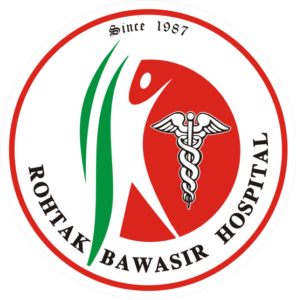The Ultimate Guide to Post-Surgery Care for Piles Patients


Updated on: 4th Jun 2024
Piles, also known as hemorrhoids, can be a painful and uncomfortable condition. For many, surgery is the most effective way to alleviate symptoms and provide long-term relief. However, the recovery process plays a crucial role in ensuring the success of the surgery and preventing the recurrence of piles. This guide will provide you with everything you need to know about post-surgery care for piles patients, ensuring a smooth and comfortable recovery.
Understanding Piles Surgery

Before diving into the post-surgery care, it’s essential to understand the types of surgeries commonly performed for piles. These include:
- Hemorrhoidectomy: The surgical removal of hemorrhoids.
- Stapled Hemorrhoidopexy: A procedure that involves stapling the hemorrhoid tissue back into place.
- Laser Surgery: A minimally invasive procedure that uses laser energy to shrink hemorrhoids.
Each of these surgeries has its own recovery timeline and specific post-operative care requirements. However, the following general guidelines apply to most patients undergoing piles surgery.
Immediate Post-Surgery Care

1. Pain Management
Post-surgery, pain is a common experience. Your doctor will likely prescribe pain relievers to help manage discomfort. It’s essential to take these medications as directed to avoid unnecessary pain and to aid in your recovery.
2. Wound Care
Proper wound care is critical to prevent infections and ensure healing. Keep the surgical area clean and dry. Your doctor may recommend sitz baths, which involve sitting in warm water for 10-15 minutes several times a day to reduce discomfort and promote healing.
3. Dietary Considerations
Your diet plays a significant role in your recovery. To prevent straining during bowel movements, which can cause complications, it is essential to consume a high-fiber diet and stay hydrated. Include plenty of fruits, vegetables, whole grains, and water in your diet.
4. Activity Restrictions
In the days following surgery, it’s important to avoid strenuous activities. Rest is crucial, but light walking can promote circulation and aid in recovery. Avoid lifting heavy objects or engaging in activities that strain the surgical area.
Long-Term Post-Surgery Care

1. Preventing Constipation
Constipation is a significant risk factor for the recurrence of piles. To prevent it, continue to follow a high-fiber diet and drink plenty of water. Over-the-counter stool softeners may also be recommended by your doctor.
2. Regular Follow-Ups
Regular follow-up appointments with your doctor are essential to monitor your recovery and address any concerns. Your doctor may recommend periodic examinations to ensure that your surgical site is healing correctly and that there are no signs of complications.
3. Maintaining Proper Hygiene
Maintaining proper hygiene is crucial for preventing infections and promoting healing. Continue with sitz baths as needed, and always ensure that the area is clean and dry after bowel movements.
4. Lifestyle Changes
To reduce the risk of piles recurrence, consider making long-term lifestyle changes. These may include:
Maintaining a healthy weight
Avoiding prolonged sitting or standing
Engaging in regular physical activity
Avoiding straining during bowel movements
Recognizing Complications
While most patients recover from piles surgery without significant issues, it’s essential to be aware of potential complications. Contact your doctor immediately if you experience any of the following:
Excessive Bleeding: Some bleeding is normal, but excessive bleeding should be reported to your doctor.
Infection: Signs of infection include fever, increased pain, redness, or pus at the surgical site.
Urinary Retention: Difficulty urinating after surgery may require medical attention.
Persistent Pain: If pain persists despite medication, consult your doctor.
Emotional and Psychological Support
Recovering from surgery can be emotionally challenging. It’s not uncommon to feel anxious or depressed during the recovery process. If you’re struggling emotionally, consider seeking support from friends, family, or a mental health professional. Support groups for piles patients may also be beneficial.
Conclusion
Recovering from piles surgery requires careful attention to your body’s needs and following your doctor’s recommendations. By managing pain effectively, maintaining proper hygiene, following a high-fiber diet, and being aware of potential complications, you can ensure a smooth recovery and reduce the risk of recurrence. Remember, your doctor is your best resource for any concerns or questions during your recovery journey.
Meet Our Specialists

Dr. Raj Kumar Garg (B.A.M.S.)
40+ Years of Experience

Dr. Rahul Garg (B.A.M.S.)
15+ Years of Experience

